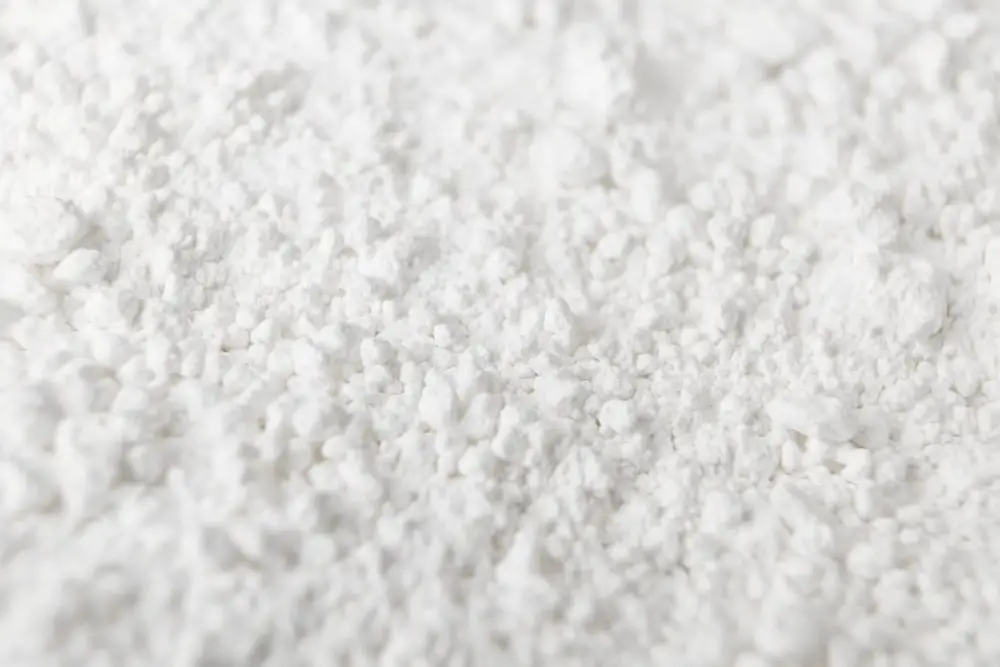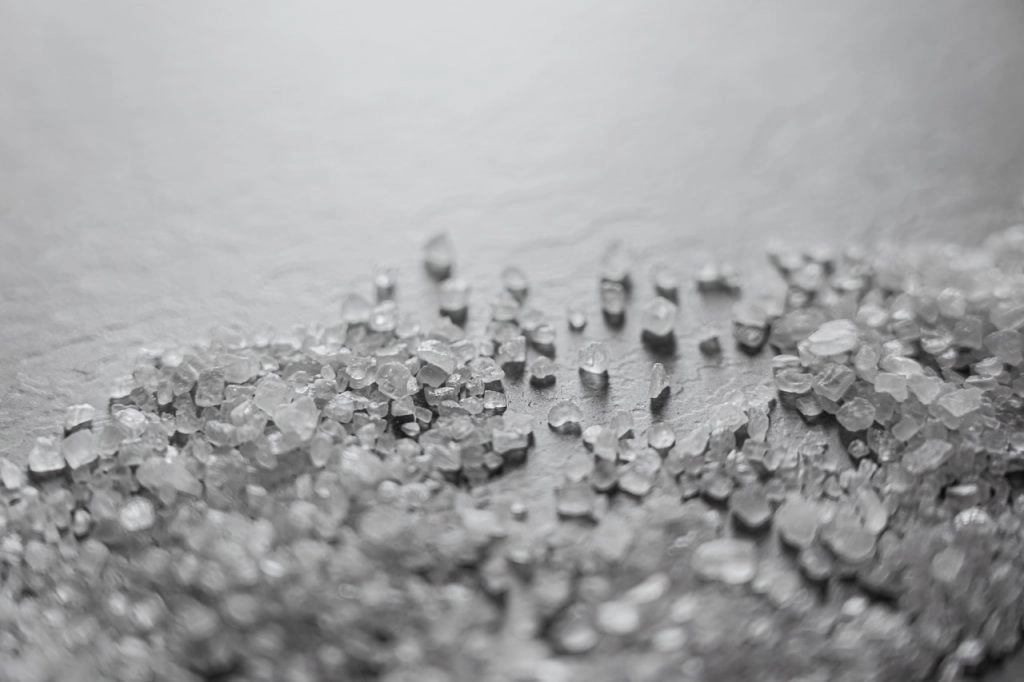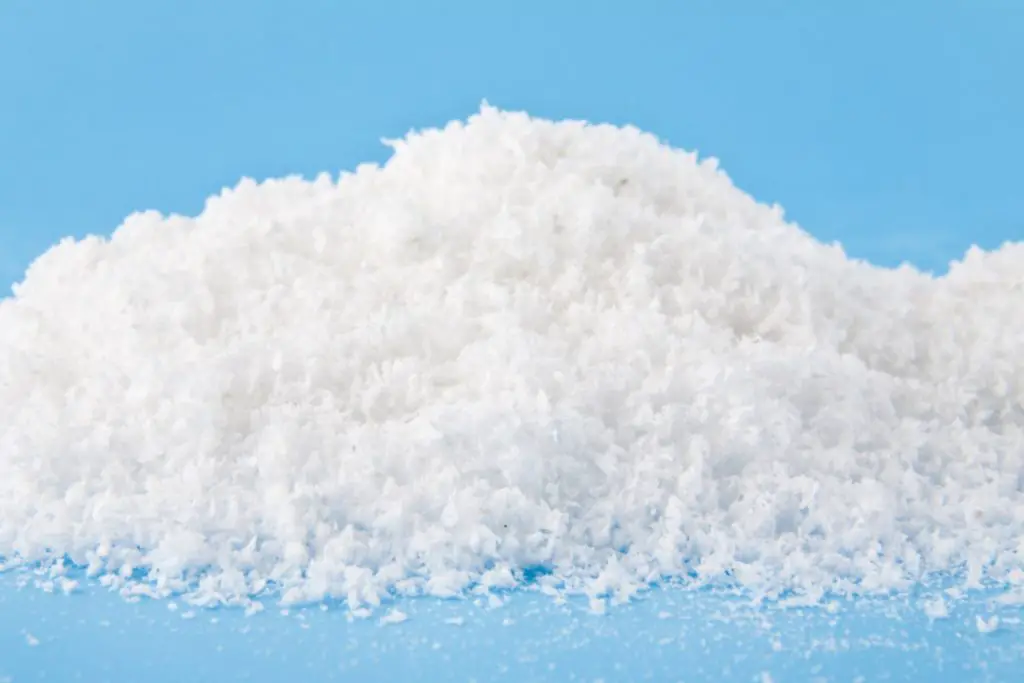If you are here, you likely already know potassium sorbate is used in skincare as a preservative. In a perfect world, we wouldn’t have preservatives in the food we eat or any of our skincare products.
This post may contain affiliate links. Read the full disclosure here
However, preservatives have their place. This special little ingredient could be the difference of you smearing bacteria and mold all over your face vs. the fresh product you originally purchased. Most of us aren’t making our own skincare products (although you should give it a try) so we need ingredients such as potassium sorbate to stop microorganism growth.
So in this guide, we’ll take you through the basics of potassium sorbate in skincare – including an overview of the ingredient, some of its uses, whether or not it’s vegan, and more.
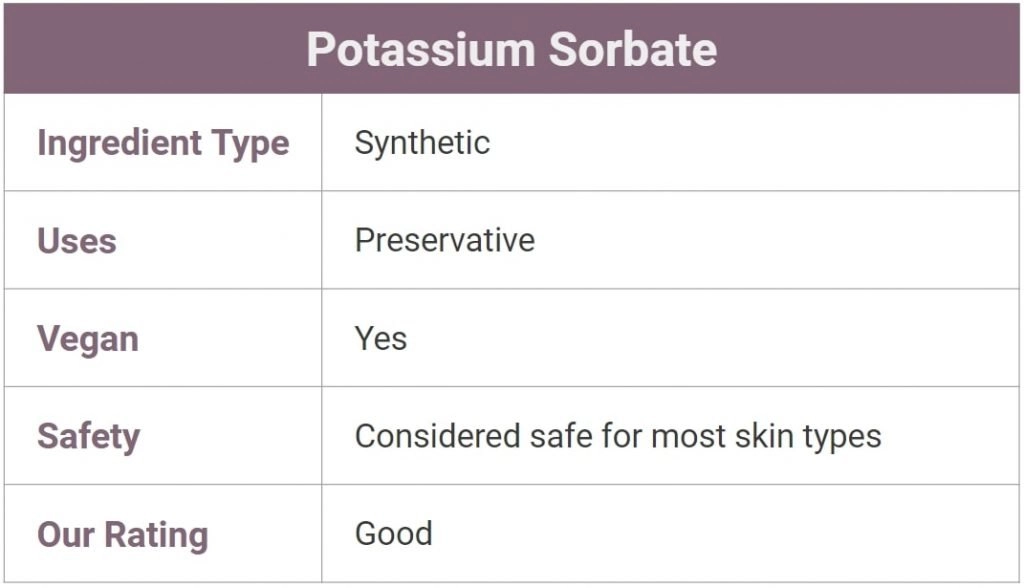
What Is Potassium Sorbate?
Potassium sorbate is a preservative found in skincare, cosmetics, and personal care products. It is the potassium salt of sorbic acid. This ingredient kills microorganisms and prevents the growth of bacteria, fungi, and mold.
It is a white, water-soluble salt that appears as small grains or crystals in its pure form. It occurs naturally in some berries, but the vast majority of potassium sorbate in the world is synthesized artificially.
Potassium sorbate has a wide variety of uses. It’s a common food preservative since it can inhibit mold and yeast in many different types of foods. It’s especially common in dried fruit and is also often used to help preserve wine.
Along with some other preservatives, potassium sorbate can help prevent the growth of mold and other microorganisms in cosmetic products, ensuring a more stable formulation and longer shelf life.
You may also see a similar preservative in skincare products, sodium chloride.
Potassium Sorbate Benefits for Skin
Wondering why preservatives like potassium sorbate are used in lotions and other types of skincare products? It’s a preservative so it helps products from going bad.
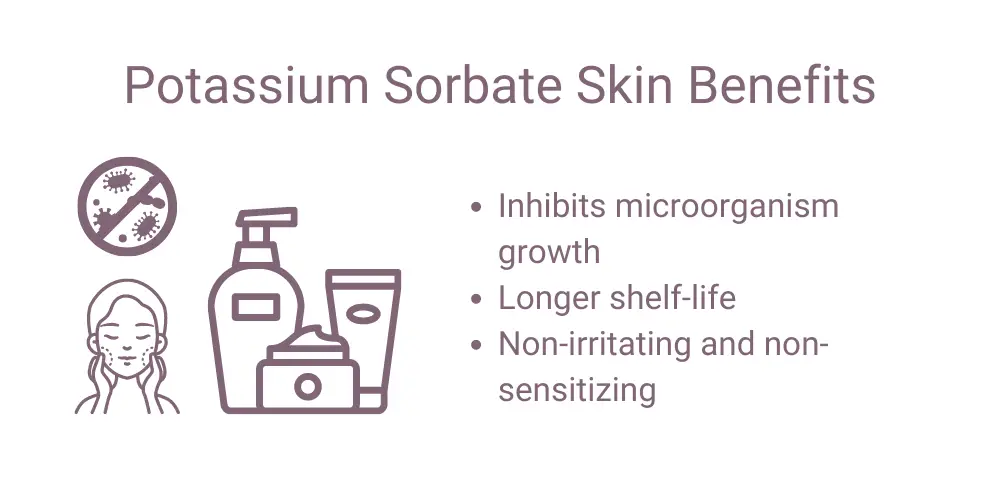
Here are a few of the uses and benefits for the skin:
- Inhibits microorganism growth – Many skin care products contain water, oils, and nutrients that microorganisms like mold and bacteria would love to consume. Preservatives like potassium sorbate stop them from growing, which extends the shelf life of your products.
- Keeps you safe from spoiled products – If your cosmetic products spoil, it may be impossible to tell. It may look and feel fine, but be full of bacteria or fungi that could harm you or cause an allergic reaction. Potassium sorbate and other preservatives help prevent this.
- Non-irritating and non-sensitizing – Despite its ability to impair the growth of microorganisms, potassium sorbate will not irritate your skin or make it sensitive in the concentrations found in typical skincare products.
Is Potassium Sorbate Safe In Skincare?
The Cosmetic Ingredient Review Expert Panel considers potassium sorbate and sorbic acid safe to use based on current practices and cosmetic concentrations. Their evaluation references bath products that are safe to use with concentrations of to 0.5%. However, most skincare and cosmetic formulations have even lower concentrations. Of the 19 cleansers, serums, creams, and moisturizers, the potassium sorbate concentration ranged from 0.001–0.3%.
Potassium sorbate is safe in skin care because it’s only present in low concentrations. In its pure form, potassium sorbate can irritate the skin, eyes, and respiratory system.
When used correctly, this ingredient is safe for your skin. Studies have found that in higher than recommended concentrations, this ingredient may lead to irritation or allergic reactions.
It’s easy to see a preservative in your skincare products and think that it’s bad, but this isn’t always the case. In a perfect world, we wouldn’t need things like preservatives in any of the products we use or consume, but without these, certain products simply aren’t safe. Without ingredients such as potassium sorbate, products can expire in a matter of days or cultivate bacteria or fungus.
Also Known As
In skincare products, this ingredient is mostly labeled as potassium sorbate, but can also be called Sorbistat-K, Sorbistat potassium, or sorbic acid potassium salt.
Frequently Asked Questions
Find answers to some of the most frequently asked questions about potassium sorbate.
References
- https://journals.sagepub.com/doi/10.3109/10915818809078711
- https://pubchem.ncbi.nlm.nih.gov/compound/Potassium-sorbate#section=MeSH-Entry-Terms
- https://online.personalcarecouncil.org/ctfa-static/online/lists/cir-pdfs/PRNS547.pdf
Related Articles:

